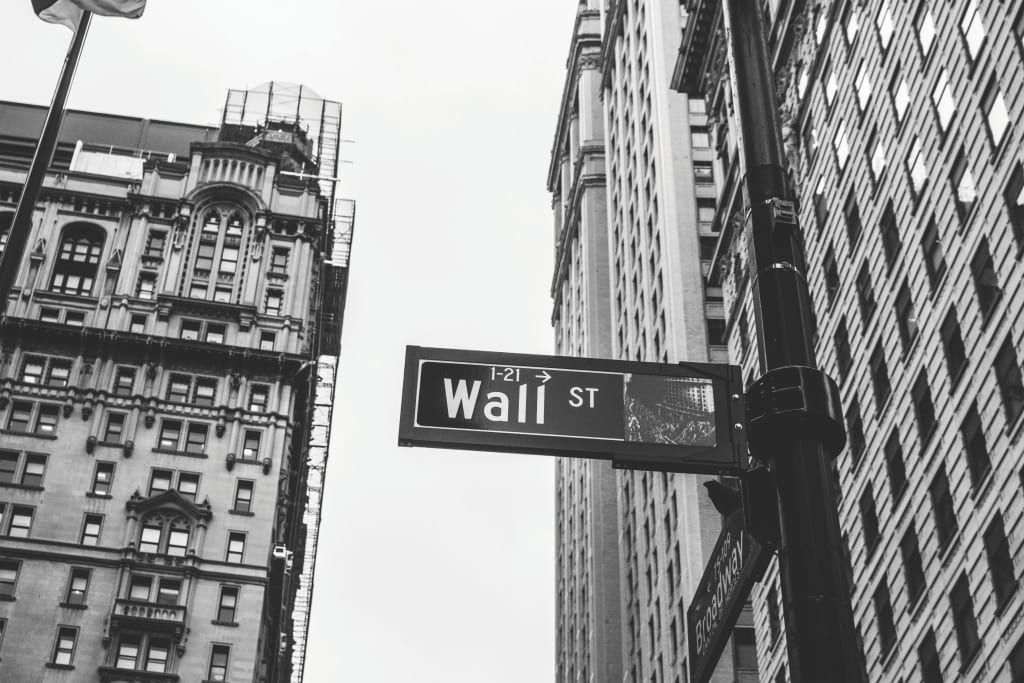Things You Didn't Know About Working on Wall Street
Working on Wall Street isn't always how it looks in the movies. If you haven't had a job as a stockbroker before, you may be surprised to hear what it's really like.

When you think of Wall Street, the first images that pop into your mind are likely snippets from the many films that have covered the historic New York City avenue. These movies, like Trading Places and Bonfire of the Vanities, were heavily inspired by Wall Street during the economic boom of the 1980s, featuring lavish dinners, yacht parties, and expensive tailored clothing. Today, however, the realities of working on Wall Street are not so glamorous.
Business wear isn't what you think it is.

Photo by Ali Morshedlou on Unsplash
I want you to close your eyes for a second and picture a stockbroker working on Wall Street. You're probably picturing a well-heeled man in polished black Oxford shoes with an impeccably-tailored, pinstripe power suit and slicked back hair. At one point in time (namely the 1980s), this was a pretty standard look in the financial district. Today, however, it only exists in movies like The Wolf of Wall Street. In the 21st century, nobody on Wall Street dresses like that. Business casual is largely the name of the game, especially for investment bankers, accountants, and other folks who aren't client-facing. Hell, some people practicing the best day trading strategies from their couch would be hard-pressed to change from their pajamas. For higher-ups who do wear suits, they largely tend to follow modern fashion trends rather than a caricature of 80s fashion.
You're no longer the only hub for stock trading.

Photo by Oliver Niblett on Unsplash
For many, many years, getting a job on Wall Street meant you were at the center of all the world's finances. Not too long ago, the Wall Street firms and big banks like Goldman Sachs were the only ones handling stocks, hedge funds, and all that good stuff. Since the widespread proliferation of the internet and other technologies, there is not as great a need for centralized agencies like this. Today, you can find brokerage firms in almost every moderately-sized city in the United States.
It's not quite so hectic.

If movies are to be believed, the life of a Wall Street stockbroker is incredibly fast-paced and high stress. Coked-out brokers monitor every minuscule movement the market makes and are ready to buy or sell millions of dollars in stocks at the drop of a hat. In real life, sure, there are times when the stress level can get a little out of hand, but normal day-to-day business isn't usually as life-or-death as you'll see in those 80s movies.
Wall Street doesn't have all the answers.

Photo by Markus Spiske on Unsplash
Through careful observation and training, stockbrokers and other financial workers can make educated predictions about long- and short-term trends. At best, however, these predictions are little more than hopeful guesses. There is a misconception that by simply being located on Wall Street, the stockbrokers and investment bankers there have some sort of higher level knowledge. The truth is, Wall Street banks and firms are no better at predicting market turns than any other financial institution. In fact, the hubris on Wall Street and the notion of being "too big to fail" has even led directly to financial crisis on multiple occasions throughout history.
It can be a pain to land a job.

Photo by Saulo Mohana on Unsplash
Although Wall Street employers aren't as exclusive as they once were, landing a good job is no easy task. This issue is compounded by the fact that many firms try to offer their applicants unpaid internships with the empty promise of moving up to a paid position at a later day. Getting summer internships may be a good way to get your foot in the door at a good firm, but one can only survive for so long without a real paycheck. What's worse, some firms will keep you on as an intern for much longer than your initial appointment. Many eventual stockbrokers endure a year or more of working for no money in order to finally move up to a paid full time gig as a broker or banker.
Don't worry, it really is full of corruption.

Photo by Sean Pollock on Unsplash
Before I get too caught up in debunking myths about working on Wall Street, it may comfort you to know that there's at least one thing the movies get right: corruption. The big investment banks and stockbroking firms on Wall Street are just as corrupt as ever; and in fact, some real-life cases are even worse than what you see in movies (Don't believe me? Take a new look at the Bernie Madoff Scandal explained and then try to tell someone in the financial world otherwise). Insider trading, securities fraud, and other scams and shady business practices run rampant on Wall Street (and just about every other street in the world).
It's not so exclusive anymore.

Another longstanding myth about Wall Street is that it's an exclusive boy's club. At one point, it may have been true that the only way to get your foot in the door at one of the Wall Street firms was to make connections at an Ivy League school or have an uncle who was the Vice President of something or other. While it remains a struggle to get and hold a job on Wall Street, it's no longer exclusive to the wealthy and well-connected. Anyone with a degree from a decent business school has as good of a shot as anyone at getting at least an entry level position at one of the big firms.
It's not a quick path to easy riches.

Photo by Pepi Stojanovski on Unsplash
Another one of the many myths perpetuated by movies like Wall Street and The Wolf of Wall Street is that as soon as you land any sort of banking or stockbroking job in New York, you're set on the path to become tremendously wealthy. This really couldn't be further from the truth. Just like in any industry in America, the higher-ups are the only ones really making big bucks. You can certainly earn a decent living as a hedge fund or portfolio manager, but entry level jobs on Wall Street don't pay much more than entry level jobs anywhere else.
It's not just stockbrokers.

Photo by Erol Ahmed on Unsplash
Another huge myth about working on Wall Street is that it's all about stocks, banking, and other financial industries. While big banks and brokerage firms like the New York Stock Exchange are still a big part of Wall Street's identity, they are not the only places to get a job on Wall Street. Wall Street has a burgeoning tech scene, as well as thousands of jobs relating to just about every aspect of the financial and business industries, leaving those of you figuring out how to get hired on Wall Streeta reason to take a sigh of relief.
Most of Wall Street isn't actually on Wall Street.

Photo by KEITH WONG on Unsplash
This is perhaps the hardest pill of all to swallow, as people enjoy thinking of Wall Street as the heart and soul of the worldwide financial industry. While the New York Stock Exchange is still located on Wall Street, the physical location is not nearly as important to working on Wall Street in the modern era of the internet. Meanwhile, just about every other institution that helped Wall Street earn its reputation has now moved. The headquarters for J.P. Morgan and Morgan Stanley have both moved from Wall Street to Midtown Manhattan. The biggest institutions operating on Wall Street today, like Deutsche Bank and Credit Suisse, are actually headquartered in Europe.
About the Creator
Joseph D. N. Kendrick
Writer of words. Haver of cats. joeykendrick.com






Comments
There are no comments for this story
Be the first to respond and start the conversation.